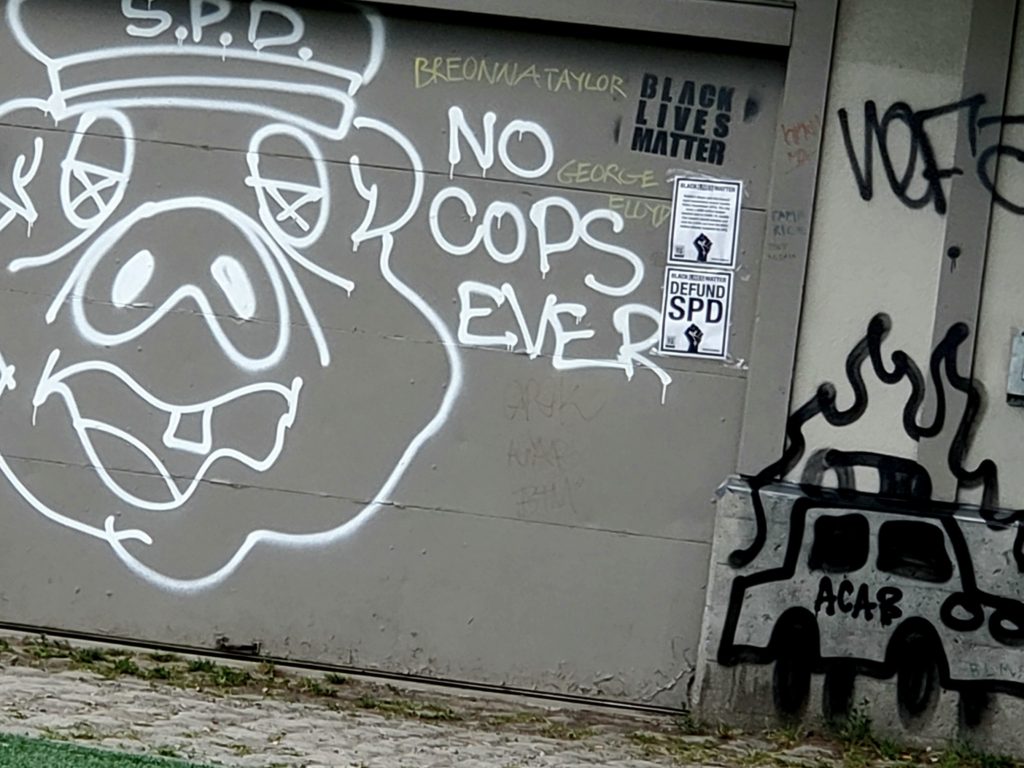Know your rights; stay firm and be practiced
Don’t cooperate with police officers or federal agents, upholding the power of the state gets us nowhere fast.
In the weeks following the insurrection by right-wing extremists, it was a common occurrence for people on the left to dox those that took part in the uprising — a practice in which the personal information of an individual is leaked online. However, with the federal government looking for information about the incident and those involved, some decided not to release the information to the public and instead to work with law enforcement to give the names of those involved with the insurrection directly to agencies investigating the incident. This was a risky choice that many on the left did not support.
We do not get to pick and choose when and how the state exercises its power, and we cannot be complicit in the use of state power in any way. The enemy of our enemy is not our friend. The cops and the state are never our allies, and allowing them to exert their power over anyone only works to justify their use of power as a whole.
Law enforcement didn’t just wait around for voluntary information to be given. They went out to see what they could dig up, and many prominent leftist organizers reported that they were contacted by Federal Agents, some even had agents come to their door looking for information. Experienced organizers know better than to work with law enforcement, and they know what to say and do if they come snooping around. But some of us aren’t as practiced, and might not know what to do in this situation that could lead to unintentional disclosure of information that puts others at risk.
With recent events in mind it’s important to emphasize that you should never talk to cops. Do not put yourself in a potentially compromising situation by giving away information that you don’t have to. Cooperating with the state and state actors only reinforces the power that they have over us. So, here are some things to remember when dealing with the police and federal agents:
Do not speak to them or answer any of their questions. You are not, and are never, required to talk to cops without legal representation present. Anything you say will only be used against you later in legal proceedings should they decide to arrest you. Be clear and inform them “I would like to remain silent.” Never lie, this will only get you in more trouble. You are under no obligation to explain yourself to officers and your best bet is to remain silent, with only three exceptions.
The first exception is when you are asked to identify yourself. The laws around this vary depending on the situation as well as the state, but if you are unsure about the specific laws, then it’s best to just bite the bullet and identify yourself. Jim Chanin, a prominent civil rights lawyer in Oakland, Ca. advises this route to avoid arrest in the case that it is illegal. According to Burg Criminal Defense’s “Know Your Legal Rights” page, in Washington state “a law enforcement officer may require you to identify yourself.”
The next exception is to ask “Am I being detained?” If you are not, then leave. If you aren’t being detained then your best option is to walk away in order to avoid further interaction with officers who are looking for an excuse to detain or arrest you in an effort to force your compliance.
And finally, never consent to searches of any kind. An officer is not legally allowed to search you, or your property, without your consent — unless they have a warrant or claim “reasonable suspicion” of a crime. And remember, just because it isn’t legal for them to, doesn’t mean they won’t do it anyways. Inform the officer clearly “I do not consent to a search.” This will help you later if they find anything they deem suspicious.
When possible record your, or others’, interactions with police. They won’t like it, but it’s your best bet to hold them accountable for what goes on during that interaction — body cam footage is unreliable considering they are the ones who have control over it.
Now, if you actually are arrested there are some extra steps that you need to take to ensure your safety and the protection of your rights:
Do not resist arrest, even if it is unjust. Police will use any form of resistance as an excuse to use force in the arrest, and the court tends to be sympathetic towards the officer. Your best bet is to comply with the officer at this point, they may use more force than necessary, but fighting back will only lead to more injury to you and your case.
This next step goes back to not talking to cops. Say “I wish to remain silent and I would like to talk to a lawyer.” After this, shut up and don’t say anything else. Remember, you are under no obligation to explain yourself to the cops and you should say nothing, sign nothing and make no decisions without a lawyer present from this point forward. If you can’t afford a lawyer you are entitled to one regardless by law.
After you are arrested you have the right to make one local phone call. If you call a lawyer, the police are not allowed to listen to your call. Most of us don’t have a lawyer on retainer though, so you’ll likely have to wait for arrangements to be made. This can take a long time so be prepared to be in custody until your lawyer arrives and continue saying nothing to anyone.
The premise seems simple enough, “Don’t talk to cops.” But knowing your rights is not enough. It’s easy to know your rights when you are calm and not in danger, it’s an entirely different world to actually exercise them in the moment. Stay firm, and be practiced. It feels ridiculous, but practice this stuff. You have to be able to exercise them when put on the spot and under pressure. You need to have a working knowledge of what to say and when to say it, it should become second nature to you. This is the best way to protect yourself and others.



